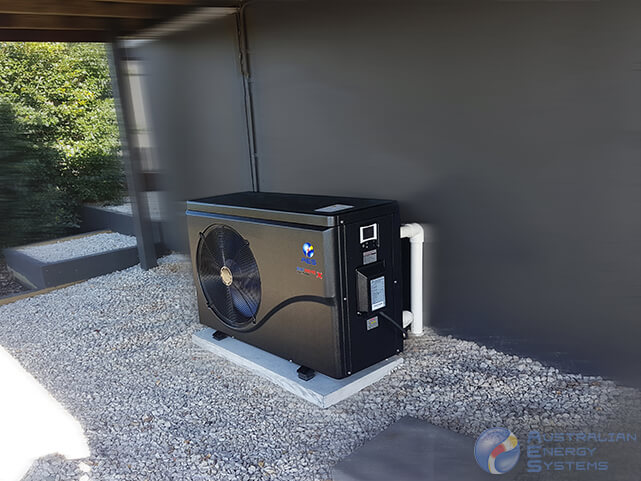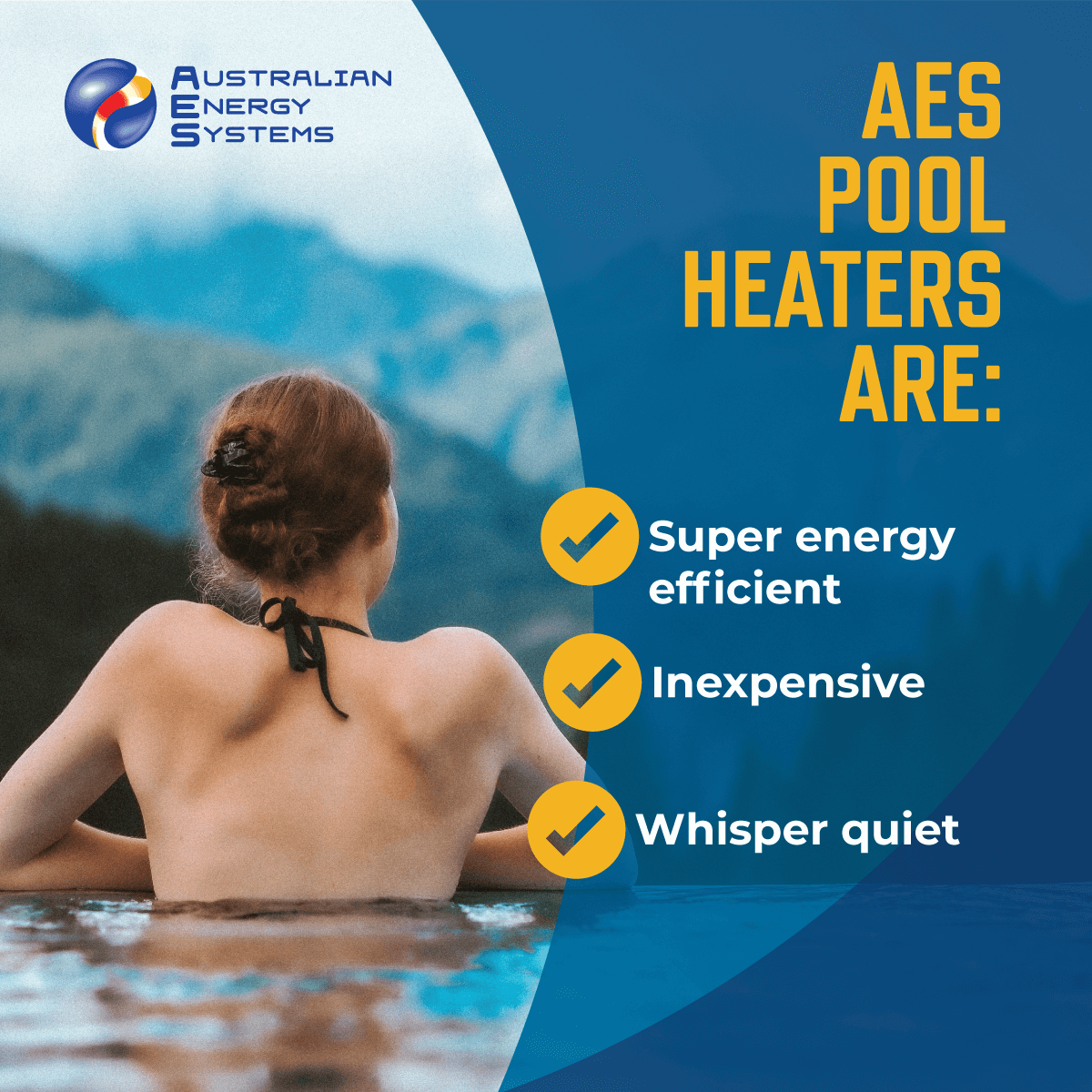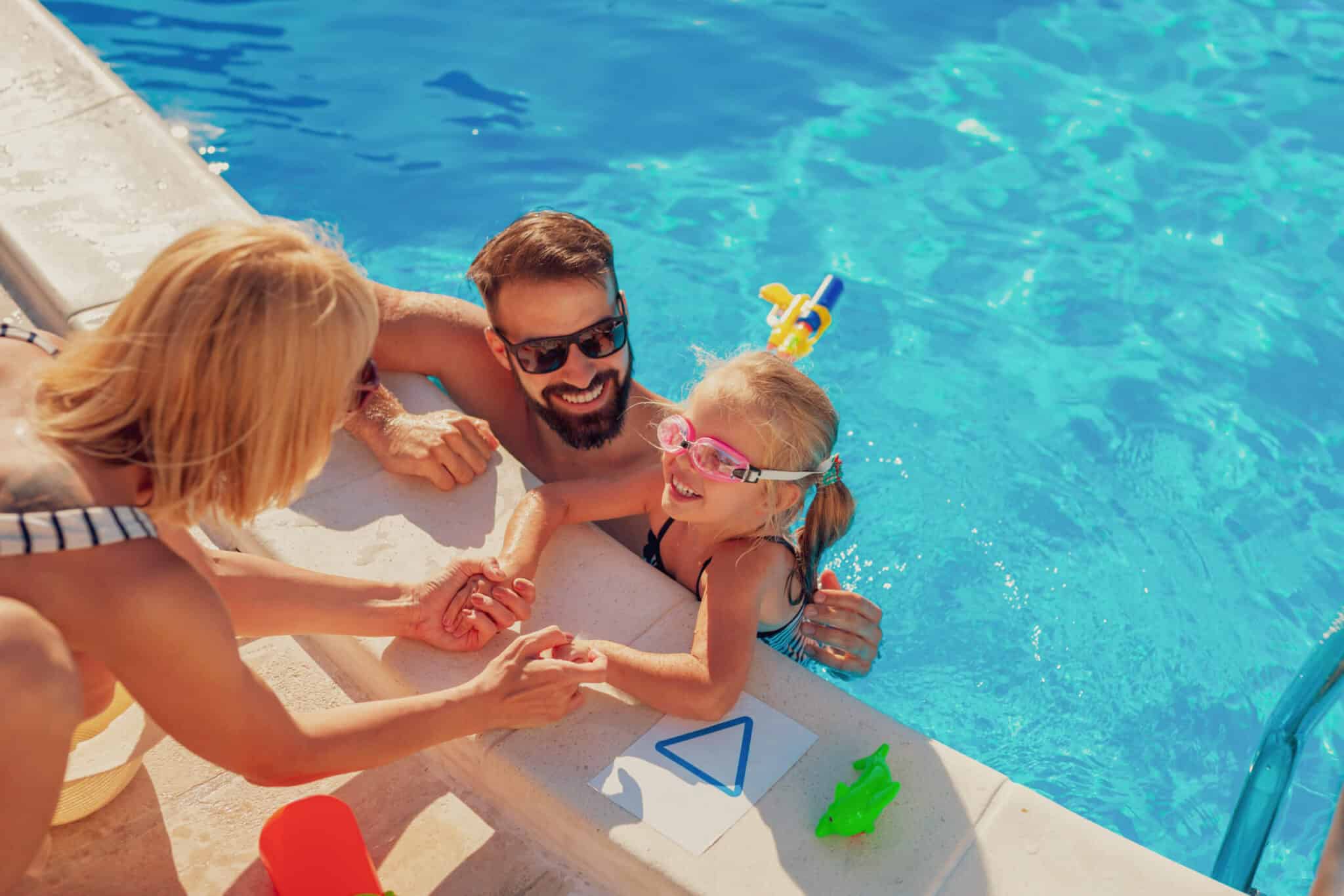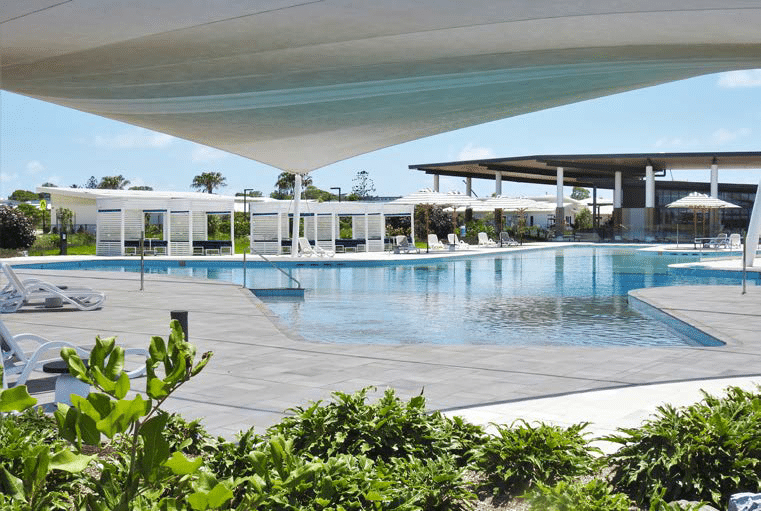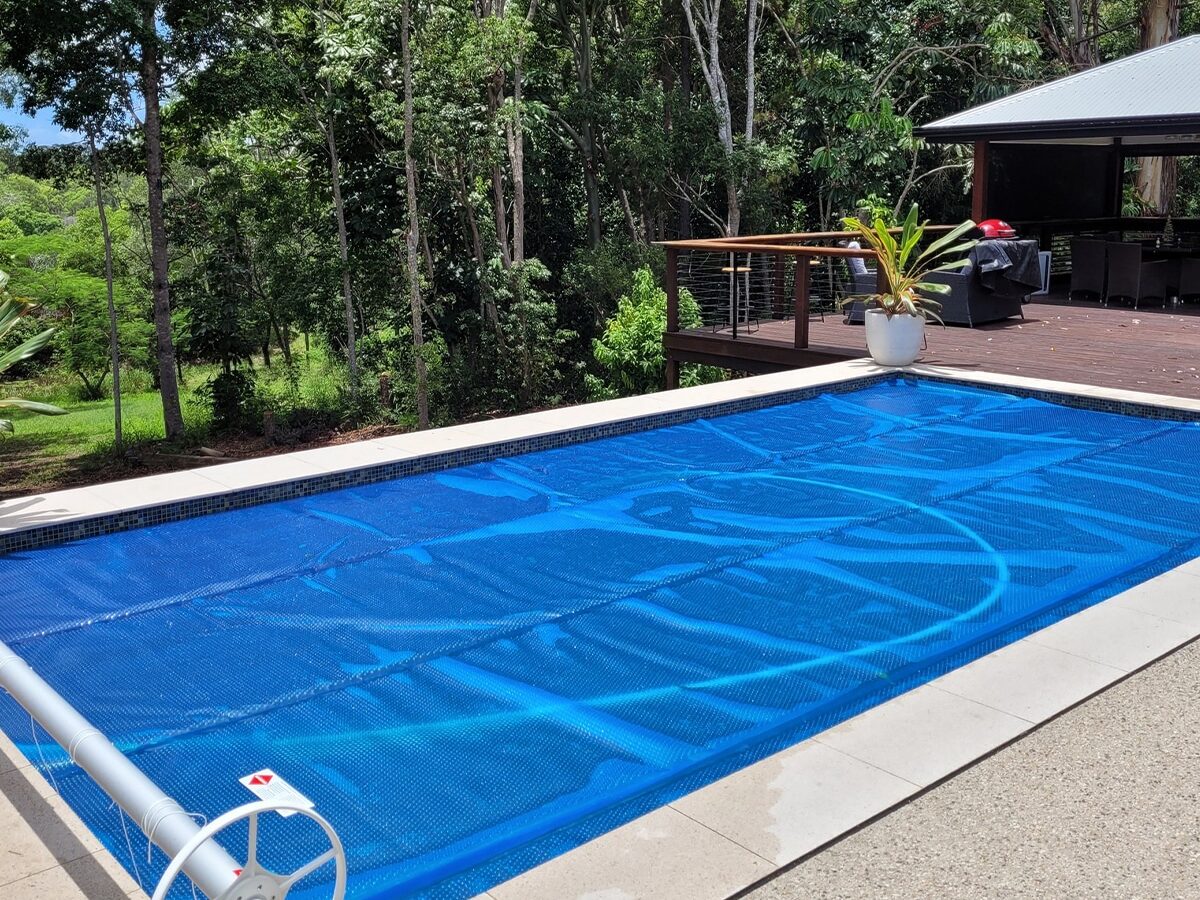Pool heaters are brilliant at keeping your pool swimmable, year-round if you like, and make having a pool more worthwhile! So, when it comes to your own backyard, is a gas or electric pool heater the best option?
AES Pool Heating Tweet
In a world filled with quick-fixes and fad gadgets, it’s no wonder pool owners are left questioning which heater is right long-term for their pool and their pocket. It’s one of the questions we’re asked most often!
Thankfully, no matter which way you go, new efficiencies in technology means heating your pool is more affordable than ever before!
Table of Contents
Comparing gas heaters and electric heat pumps
If you’ve already started researching pool heaters, you’ve probably discovered there are many similarities across the types of systems. To make it easier, we’ve made a list of pros and cons for each type of pool heater.
The pros and cons of gas heaters
Gas heating is the oldest of the pool heating options on the market today. They can run on natural gas or LPG and are very effective at heating the water quickly.
Pros for gas heaters:
Gas heaters are the best option if you want fast heating. By pumping water through gas heated pipes, these heaters can warm an average pool to a pleasant 28 degrees in just 8 to 12 hours, and a spa even more rapidly.
So, if you find yourself planning an impromptu Sunday afternoon BBQ over breakfast, you may be able to have your pool ready and waiting for guests on the same day!
Installation is easy and can usually be done same day.
Cons for gas heaters:
Speed comes at a cost. Despite being fractionally cheaper to purchase, rising gas prices are making gas heaters more cost prohibitive in the long run.
While recent improvements to technology have seen a reduction in pollution, gas heaters are the less environmentally friendly option. They also have a shorter lifespan than their electric and solar counterparts.
Summary:
Despite the cons, there is still a time and place for the gas heater. Many people choose gas heating for smaller spas and if they’re only heating their pool on an “as needed” basis.
The pros and cons of electric heat pumps
Electric pool heaters are widely recognised as the most efficient and affordable pool heating option, and the one we recommend most often.
In very simple terms, electric systems transfer the heat from the air to a refrigerant, which is turned into a hot gas used for heating the water. The warmer the air temperature, the less effort and energy is expended, making electric pool heaters a great power friendly choice, especially for those fortunate enough to live in sunny climates.
Pros for electric heat pump heaters:
Electric pool heat pumps can be slightly more expensive at the outset, but often provide maximum cost efficiency in the long-term. Full inverter electric heat pumps can be as much as 10 times more energy efficient than other pool heating systems and are more environmentally friendly and safer than gas heaters.
Full inverter heat pumps are the most cost-effective solution for extending the time you can enjoy your pool. They dynamically regulate the compressor and fan speed, based on the environmental conditions and your temperature requirements, making it far more cost efficient than non-inverter alternatives.
If you’ve got solar installed on your roof, you’ll also be able to offset some of the operating costs, making the cost to heat the pool even more negligible!
Cons for electric heat pump heaters:
While it may have a slightly higher price tag initially, it’s important to remember that an electric pool heater is a long-term investment. Electric heat pumps don’t offer the rapid heating that a gas heater does, so you’ll need to do a little more pre-planning once the temperatures start to drop or simply elect to maintain the desired temperature.
Summary:
Electric heat pumps are the best choice for families and pool owners who want a pleasurable, year round swimming experience, those who care for the environment and those who can afford to spend a little more up front (and then save more for years to come). Solar owners will find electric systems even more appealing as they’ll continually offset the operating costs.
Other factors to help you decide
1. Size does matter.
It is important that the system is sized appropriately, to ensure it can achieve your desired temperature with minimal effort and energy (and therefore cost). An undersized system, while cheaper initially, will have you paying more in the long-term because of the extra workload and time required to bring your pool to the desired temperature.
In this instance, opting to go “cheap” at the outset, will cost you far more in the long run! That’s a sure-fire way to take some of the joy from your swimming experience.
2. You need reasonable expectations for pool temperature.
The higher the temperature is set, the harder the system will work in trying to achieve it and, once again, you’ll find yourself spending more in power. If you’re looking for a hot soak, a bath is a much cheaper option! A comfortable swimming temperature is around 26 to 29 degrees Celsius.
3. Use a suitable pool cover to preserve the heat.
Factor a pool blanket into the budget when making your pool heater purchase and your back pocket will thank you in the long term. The more heat you can retain in your pool, the less your heating system will have to work to maintain those precious degrees.
4. Your other option for pool heating is solar pool heating.
While cheaper to run, it does have some limitations. You can see our comparison between all three pool heating systems here.
The final verdict
When you’re comparing pool heaters, you’ll need to use this formula:
Personal usage vs. ongoing cost
How do you want to use your pool, and how much will it cost you per year to achieve it?
If you want to see what your options are, you can call our team anytime for a hand. We can explain the options and costs, and what would suit your lifestyle, location and pool size.
Lastly, you’ll drastically improve the cost-efficiency of your pool heater – whichever one you choose – by adding a pool cover, which can save up to 70% heat loss.

